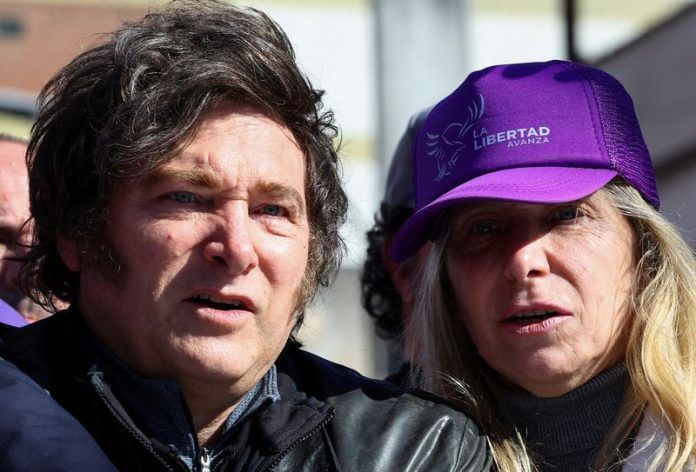By Leila Miller
BUENOS AIRES (Reuters) -A federal civil court judge in Argentina on Monday barred media outlets from publishing audio recordings that were made inside the presidential palace, presumably of the sister of President Javier Milei, as the government weathers a storm of corruption allegations heading into elections.
The president’s spokesperson, Manuel Adorni, posted on social media a court order that prohibits distribution of the audios recorded inside the Casa Rosada presidential palace via media outlets or social media platforms.
The government had filed a complaint in federal court against an “operation of illegal intelligence with the aim of destabilizing the country in the middle of an election campaign,” Adorni said.
The recordings included private conversations of officials, including the president’s sister, Karina Milei, who is also chief of staff, Adorni said.
The federal judge’s order comes as Milei’s government faces allegations of corruption after a separate series of audio recordings were leaked to local news outlets in August.
The recordings barred by the federal judge on Monday were already published on a streaming platform, according to Argentine newspaper La Nacion. In them, Karina Milei can allegedly be heard addressing her staff about labor issues.
“We have to be united,” she was heard saying, according to the paper.
Milei’s government is on wobbly political ground heading into the October midterm elections, which are an opportunity to expand his government from its current minority. The midterms are preceded by local elections in Buenos Aires province on September 7, currently dominated by the Peronist opposition.
In the audio recordings leaked in August, which sparked a political scandal, Diego Spagnuolo, the then-head of Argentina’s disability agency, can allegedly be heard discussing bribery within the agency. He alludes to Karina Milei as receiving payments.
The president, who fired Spagnuolo after the audios surfaced, has dismissed the recordings as a lie.
Reuters could not independently corroborate the audio recordings.
(Reporting by Leila Miller; editing by Cassandra Garrison, Rod Nickel)
Disclaimer: This report is auto generated from the Reuters news service. ThePrint holds no responsibility for its content.




